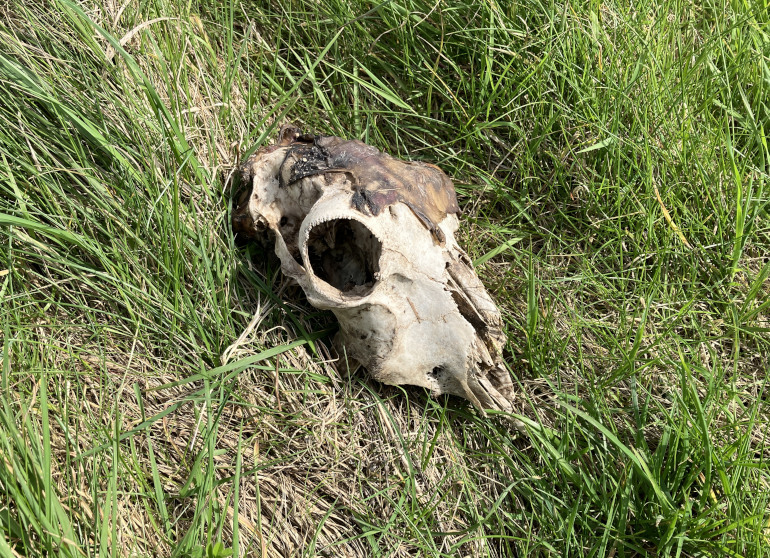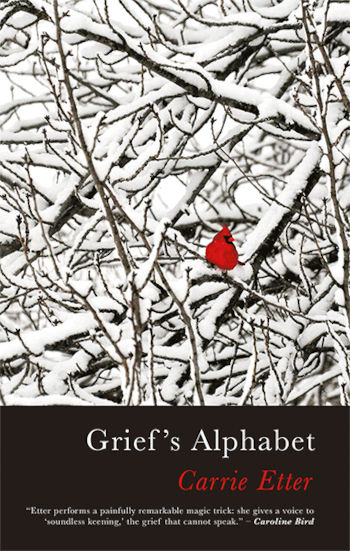 Pinning the memories of several lifetimes to the page and shining up the gut-punch moments that really sum up key relationships is no mean feat, but poet Carrie Etter achieves it with apparent ease. From Birthday as Adoption Day to the soaring hopefulness of Reincarnation as Seed, the poems tug and pull at you like rough weather or the tumble of a hectic family. It makes the passages of stillness even more powerful, as Etter pulls back her arrow and lets it fly to strike with exquisite accuracy into your heart.
Pinning the memories of several lifetimes to the page and shining up the gut-punch moments that really sum up key relationships is no mean feat, but poet Carrie Etter achieves it with apparent ease. From Birthday as Adoption Day to the soaring hopefulness of Reincarnation as Seed, the poems tug and pull at you like rough weather or the tumble of a hectic family. It makes the passages of stillness even more powerful, as Etter pulls back her arrow and lets it fly to strike with exquisite accuracy into your heart.
In part I. Origin Story, and especially in The Lauras, we taste the hope of belonging with the pleasure of being mis-called her sister Laura’s name (“Which did I covet more, the lyrical Laura/ or her blood and with it/ the unspoken moniker real daughter?”), while in American Dream, the panic of redundancy is played out on the precarious stage of a staircase: “She stares at him, grimaces, does not yet know./ He holds his head in his hands. He counts up his dependents.”
The duality of this time is caught in The House of Two Weathers or the Years after the Layoff, where couplets showcase doubled up possibilities suggesting the variable weight of moods on the family home: “The potted African violet on the kitchen windowsill/raised its richest purple or drooped/ The mother bustled over the stove/ or at the sink stood, staring out.”
The thin line walked throughout childhood and beyond shimmers like a fairytale where things breathe in shadows, an image given solidity in Graduation: “I put my neck in the bear’s jaws / to make a true picture / of how I / how we got here.”
This poem, like several others, sits in a dense paragraph on the page, so that reading it is a headlong rush that makes you want to go back and read once more, slowly, so you don’t risk missing a word.
In part II. The Brink, we face the worst, with a loss so great this entire collection is dedicated to it. Scenes unfold over a borrowed coffin, in a church where “hazel-haired Laura sways as she weeps’, and in the dispersal of a household and lifetime’s possessions, with laments and wonder echoing through titles such as Why didn’t I Save One of “Her Lighthouses for Myself.
In part III: Orphan Age, healing begins through an act of remembering, and noticing, from lists like the gorgeous The Modie Box, to the sudden delight of Wintering, where the poet watches a flock of small birds in a maple tree. “The day would be short, and they would have all of it.”
That line to me shouts out the emotion at the heart of Grief’s Alphabet. Life is short, and like small birds on a winter’s day, we should demand every scrap of it.
This is a collection of love stories to families and our younger selves, of forgiveness, acceptance and an appetite always for more. As personal as these slices of ordinary lives are, in each I suspect you’ll find something recognisable, moving and remarkable.
Grief’s Alphabet by Carrie Etter is published by Seren Books. Buy your copy here.
This book was given to me in exchange for a fair review.
What are you reading? I’d love to know. I’m always happy to receive reviews of books, art, theatre and film. To submit or suggest a review, please send an email to judydarley (at) iCloud.com.
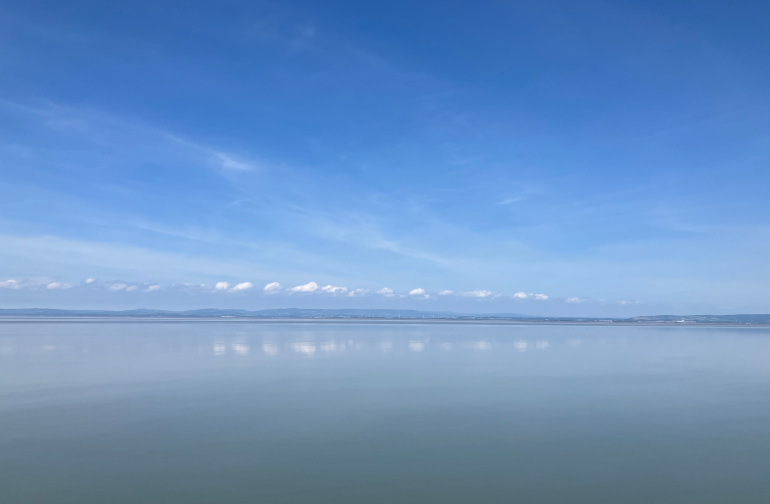 What does it mean when the sea is so still it mirrors each cloud? With no waves to break, and no wind to gust is the sea in fact still the sea?
What does it mean when the sea is so still it mirrors each cloud? With no waves to break, and no wind to gust is the sea in fact still the sea?
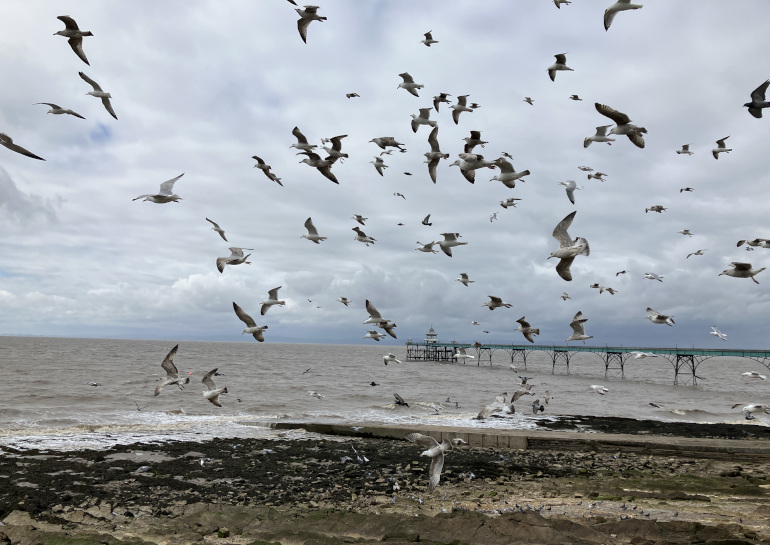 Do you live in North Somerset and write fiction? If so, I urge you to
Do you live in North Somerset and write fiction? If so, I urge you to  Jackie Hales moved to Clevedon in 2022 and is thoroughly enjoying being involved with local writing, reading, singing and walking groups. Before retiring, she taught Creative Writing modules, and back in the 1990s, she was a Poetry Guild national semi-finalist.
Jackie Hales moved to Clevedon in 2022 and is thoroughly enjoying being involved with local writing, reading, singing and walking groups. Before retiring, she taught Creative Writing modules, and back in the 1990s, she was a Poetry Guild national semi-finalist.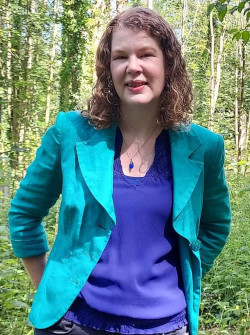 Judy Darley is an award-winning writer, editor and creative workshop leader who relocated to Clevedon in December 2023. She is the author of short fiction collections
Judy Darley is an award-winning writer, editor and creative workshop leader who relocated to Clevedon in December 2023. She is the author of short fiction collections  What does ‘summer’ mean to you? For me it’s days like the one pictured, with skies that look like they’ve been painted, boats on the water and families on the shore. It may not be perfect blues and blazing hot days, but, as we Brits say (when we can) “at least it’s not raining.”
What does ‘summer’ mean to you? For me it’s days like the one pictured, with skies that look like they’ve been painted, boats on the water and families on the shore. It may not be perfect blues and blazing hot days, but, as we Brits say (when we can) “at least it’s not raining.”
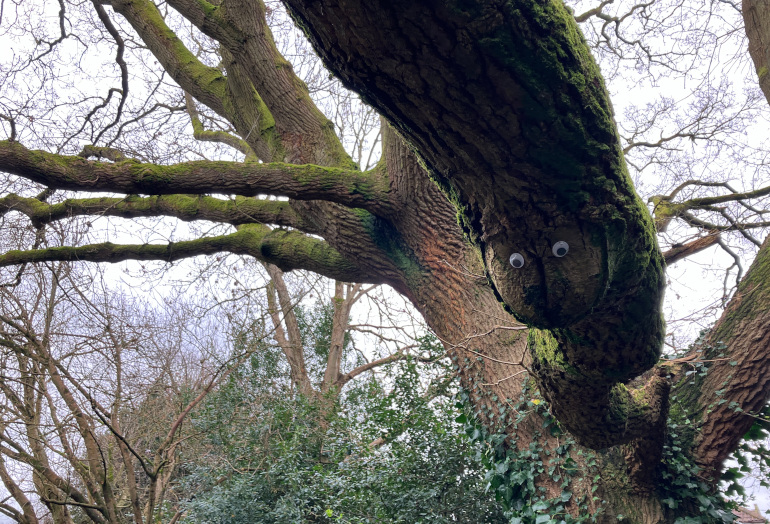
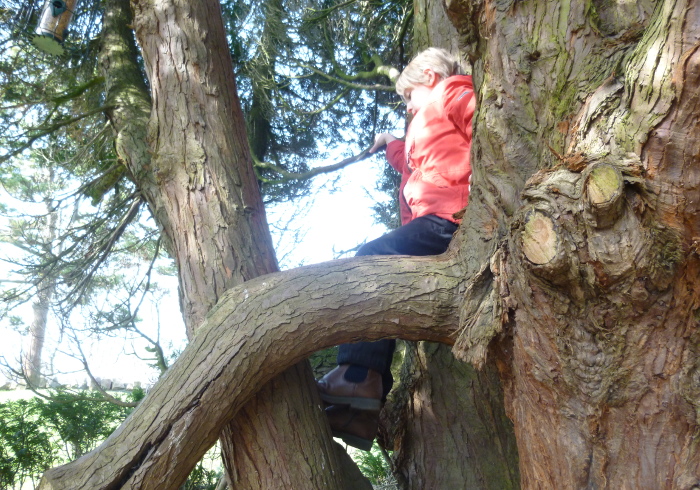
 Pinning the memories of several lifetimes to the page and shining up the gut-punch moments that really sum up key relationships is no mean feat, but poet Carrie Etter achieves it with apparent ease. From Birthday as Adoption Day to the soaring hopefulness of Reincarnation as Seed, the poems tug and pull at you like rough weather or the tumble of a hectic family. It makes the passages of stillness even more powerful, as Etter pulls back her arrow and lets it fly to strike with exquisite accuracy into your heart.
Pinning the memories of several lifetimes to the page and shining up the gut-punch moments that really sum up key relationships is no mean feat, but poet Carrie Etter achieves it with apparent ease. From Birthday as Adoption Day to the soaring hopefulness of Reincarnation as Seed, the poems tug and pull at you like rough weather or the tumble of a hectic family. It makes the passages of stillness even more powerful, as Etter pulls back her arrow and lets it fly to strike with exquisite accuracy into your heart.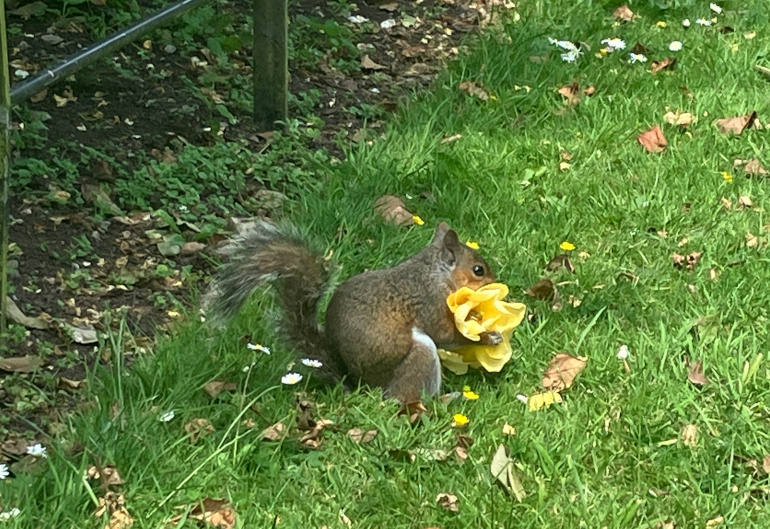
 The Bridport Prize
The Bridport Prize